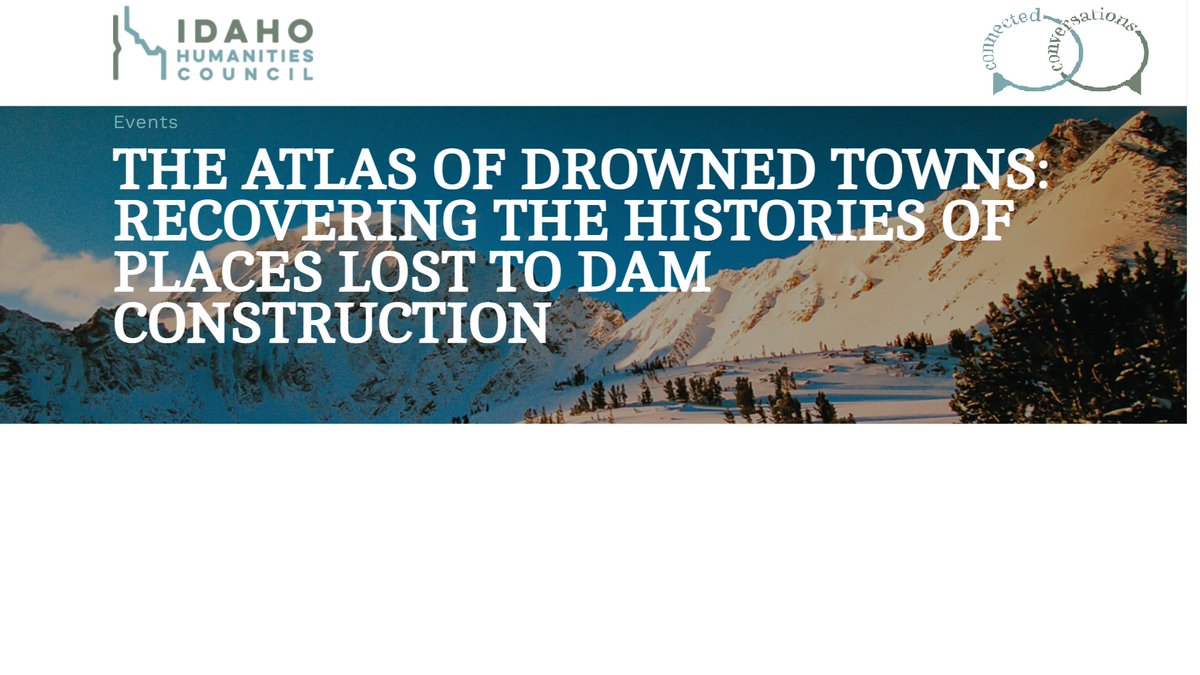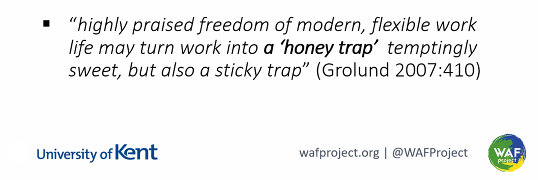
Looking forward to what should be an interesting debate on whether or not animal health, as well as human health, should be given equal consideration to #HealthEconomics debates #AnimalHealthEconomics
https://twitter.com/OHENews/status/1486012759812808704
First, attendees are asked of they believe we need animal health economics:
📊59% say Yes
📊 41% say Don't Know
📊 0% say No
#AnimalHealthEconomics
📊59% say Yes
📊 41% say Don't Know
📊 0% say No
#AnimalHealthEconomics
.@ChrisSampson87 opens by giving an overview about the importance of #AnimalHealth in economics - noting the size of the petcare market, size of charitable giving to animal welfare charities & increasing crossover between zoonotic diseases & human health #AnimalHealthEconomics 

Sampson believes that, increasingly, Health Economics is a fragmented field - with people focused on human health, environmental health & animal health. Says there is scope for greater collaboration to recognise the importance of Animal Health Economics #AnimalHealthEconomics
Next speaker @werner_brouwer believes that there is a role for animal health economics in discussing wider health economics #AnimalHealthEconomics
Brouwer gives the example of animal welfare & animal health in farmland animals - says it could be useful to have a "species trade-off" when deciding how many animals are we willing to slaughter to protect human health #AnimalHealthEconomics
Another example Brouwer cites is providing compulsory animal health insurance, where the wealth of knowledge in human health insurance can create "vibrant new markets" for pet owners #AnimalHealthEconomics
Finally, Animal Health Economics would also help us to better understand the value of biodiversity and animal welfare when protecting our natural assets #AnimalHealthEconomics
However, Brouwer says we cannot simply use "old tricks" from Human Health Economics when considering Animal Health Economics. For example, do we adopt a human-centric approach (eg impact on human health) or for the betterment of animal welfare? #AnimalHealthEconomics
Brouwer concludes that we need to expand debates around health economics to include animal health economics - but only if "old dogs" are willing to learn "new tricks" #AnimalHealthEconomics
Next speaker @StefanLipman discusses whether we need an Animal Health State Valuation in the same way we have for children #AnimalHealthEconomics
Lipman says this makes more sense than may first appear. Firstly, many owners treat their pets as extensions of their family. Secondly, many of the debates around Animal Health State Valuation are similar to that of Child Health State Valuation #AnimalHealthEconomics 

Lipman says we already have metrics for anticipating animal health & welfare preferences - particularly around issues of food and housing. #AnimalHealthEconomics
Lipman makes the case for Quality Of Life Evaluations for when it comes to euthanising companion animals. Says standardised measures would help alleviate pain & suffering for owners, lower stress of vets & lead to less animal suffering #AnimalHealthEconomics
In conclusion, Lipman reports by repeating his belief that we should extend Quality of Life Evaluation for Animals as well as humans #AnimalHealthEconomics
Next speaker @LouiseProud3 sets out the moral case for including Animal Health in Health Economics. Says at the moment, animal health is currently shaped by human consideration - which is primarily the free market #AnimalHealthEconomics
However, Proud notes that, as the largest stakeholder in that market (eg farm animals), animals themselves have no way of contributing to discussions in how that market is shaped #AnimalHealthEconomics
Proud then sets out the three moral starting points of animal health:
- Animal's moral status set by human's needs
- Animals having moral rights, but less than humans
- Animal and Human moral rights are equal
#AnimalHealthEconomics
- Animal's moral status set by human's needs
- Animals having moral rights, but less than humans
- Animal and Human moral rights are equal
#AnimalHealthEconomics

At the moment, Proud believes our society moves up and down the spectrum. Says at the moment, it is difficult for humans to make informed decisions about the animal welfare aspects of the products they consume #AnimalHealthEconomics
For example, Proud notes that people may be attracted to a "free range" product label, but that does not always give a clear picture of the animal suffering involved in the product #AnimalHealthEconomics
However, Proud also says that this does little to take in animal's innate preferences (eg barn raised via open-air batteries). She concludes saying the role Animal Health Economists would play would be to asset animal's moral rights in the debate #AnimalHealthEconomics
Final speaker @HajBrum discusses how we decide which animal health technologies that we should decide to publicly fund. Says that at present, much of Health Economics looks at funding of human health technologies, not animals #AnimalHealthEconomics
Al-Janabi says that Animal Health Economics could help incentivise better and kinder ways of managing animal diseases - in particular how we balance current reduction strategies with reducing animal suffering #AnimalHealthEconomics
Al-Janabi also argues that Animal Health Economics could be developed to help us promote greater animal wellbeing. Believes we need much more prescriptive theory to understand how current animal health decisions are made & what we ultimately want to achieve #AnimalHealthEconomics
Al-Janabi recognises that approaches will vary by sector - with varying overlapping with human health debates. Ultimately, though, promoting biodiversity & making more productive foodchains should have positive benefits for both human & animal health #AnimalHealthEconomics 

In conclusion, Al-Janabi calls on Animal Health Economists to "resist becoming hyperspecialised" and to work with colleagues across disciplines to help mainstream animal health into economic theory #AnimalHealthEconomics
Next, Sampson summarises the key themes raised by the panellists. In particular, the various costs and opportunities that would be presented by more widely considering animal health as part of health economics #AnimalHealthEconomics
He repeats the poll of attendees as to whether we need animal health economics:
📊 72% now say Yes
📊 7% now say No
📊 20% now say Don't Know
#AnimalHealthEconomics
📊 72% now say Yes
📊 7% now say No
📊 20% now say Don't Know
#AnimalHealthEconomics
Looking at next steps, Sampson highlights the need to engage with academics, thinkers and other stakeholders from across disciplines to help build a robust case to policymakers to have a greater consideration of animal health as part of health economics #AnimalHealthEconomics 

The webinar now moves on to a Q&A panel discussions #AnimalHealthEconomics
First Q is on whether main beneficiaries of animal health economics should be animals or humans. Sampson says it depends on what our ultimate policy goals are. However, believes animals would have more to gain as "they are starting from a lower bar" #AnimalHealthEconomics
Brouwer says, simply by the fact that we have distinguished "animal health economics" from "health economics" implies the latter is intrinsically about human health, therefore animals will benefit from human health economics #AnimalHealthEconomics
However, he believes that we should view the two as "win-win": When we improve animal health, we also will improve human health (eg in food chains, through improved environment, etc) #AnimalHealthEconomics
Lipman believes it will primarily benefit human health as, by the nature of the way that policies and research will be done, it will be shaped & informed by humans and their experiences #AnimalHealthEconomics
On whether animal health economics will require society to take on a more welfareist outlook, Al-Janabi says no. Argues human health insurance is as much about maximising profit, as well as improving health outcomes. Believes animal health will be the same #AnimalHealthEconomics
Proud says our current concept of "health" when it comes to animals is "being disease free". Whereas when we consider human health, we take in physical & mental health, & wider wellbeing. Says this will be a challenge for economists to translate to animals #AnimalHealthEconomics
Next Q is put as a poll as to which sector would benefit most from Animal Health Economics:
📊 33% say Veterinary Care
📊 6% say Human healthcare
📊 5% say Life Sciences
📊 22% say Pet Insurance
📊 17% say Agriculture
📊 17% say Environmental Protection
#AnimalHealthEconomics
📊 33% say Veterinary Care
📊 6% say Human healthcare
📊 5% say Life Sciences
📊 22% say Pet Insurance
📊 17% say Agriculture
📊 17% say Environmental Protection
#AnimalHealthEconomics
On the overlap between animal interests & human interests in animal health economics, Proud says that interests seem interconnected, but only on a narrow concept of animal health. Also says animals tend to be discussed as populations, not individuals #AnimalHealthEconomics
Also says that we currently have a very human-centric view of the bond between animals & humans (eg owning a pet is good for mental health of human, but human may keep animals in conditions the animal does not like) #AnimalHealthEconomics
Brouwer argues that the current #Coronavirus pandemic shows that the relationship between animal health and human health will become increasingly important in the future #AnimalHealthEconomics
Next Q is on the nature of trade-offs needed to give animal health & human health parity (e.g. human diet, ranking which animal "matters more" if you feed a pet meat, etc). Al-Janabi & Lipman both say some animals will matter more than others #AnimalHealthEconomics
However, Lipman says this is more "one of the philosophers, rather than the economists". Proud argues that there is currently a lot of incomplete information when it comes to animal welfare and how humans value different animals #AnimalHealthEconomics
Proud gives the example of 🐔s, which are valued more than other farm animals. Says people often care more about their welfare, but often find it difficult to get complete pictures of their wellbeing in farming #AnimalHealthEconomics
Final Q is on what next steps should be. Sampson repeats that he believes that Animal Economics should refrain from becoming a specialist subject & become more mainstream across health debates #AnimalHealthEconomics
Lipman argues that health economists should develop greater partnerships with veterinarians. Believes that the veterinary care is the sector that will have the most to gain from the discipline & provide richer datasets for researchers #AnimalHealthEconomics
Brouwer believes that pandemics, environmental policy & considerations of human wellbeing will invariably make animal health a more pressing policy issue, which is why animal health economics is needed #AnimalHealthEconomics
Al-Janabi disagrees. Believes reallocating resources from human health to animal health will be unpalatable for most policy makers. As such, animal health will be an economic issue, addressing market failures & individual needs #AnimalHealthEconomics
Fascinating debate on the need (& future) of considering animal health in wider health economics debates. Thanks @HajBrum @werner_brouwer @StefanLipman @LouiseProud3 & @ChrisSampson87 for your insights, to @chrisskedgel for chairing & @OHENews for hosting! #AnimalHealthEconomics
@threadreaderapp unroll please
• • •
Missing some Tweet in this thread? You can try to
force a refresh





